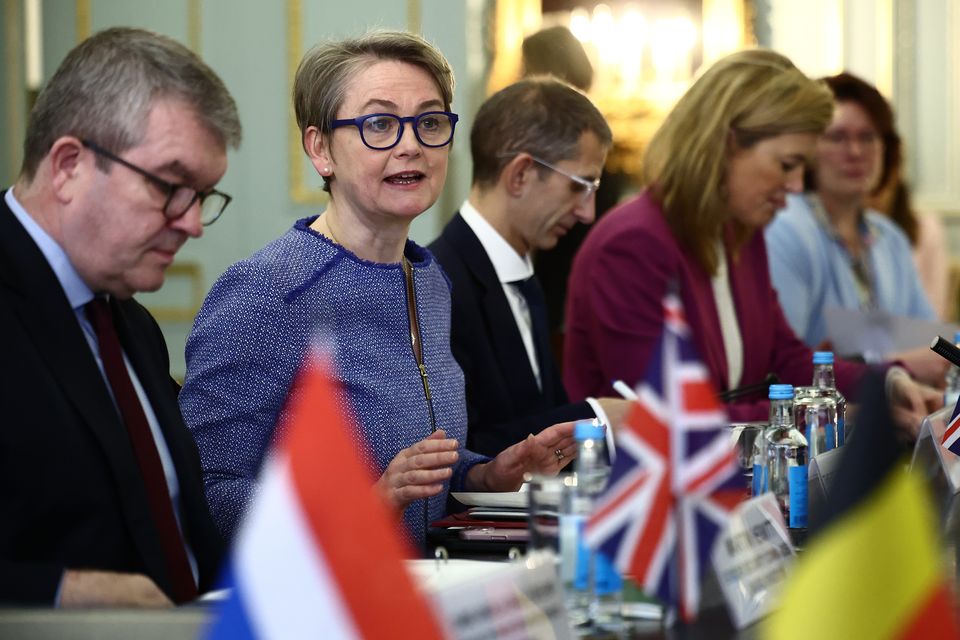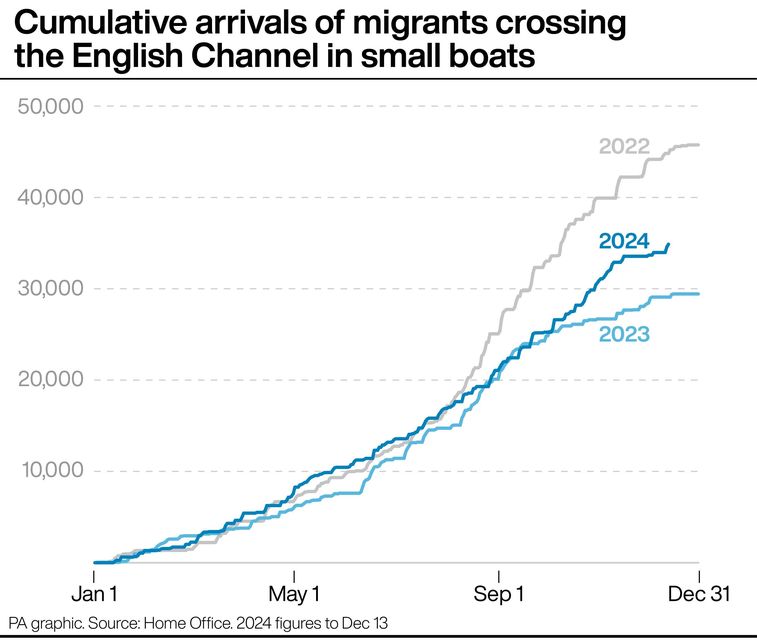Another seven asylum hotels will close in the New Year, the Home Secretary has revealed.
Yvette Cooper told the Commons Home Affairs Committee on Tuesday that she had issued closure orders for the seven hotels as the backlog of asylum cases was now coming down.
In November, ministers admitted 14 hotels had been opened and seven closed since Labour came to power, bringing the total in use to 220. Closing another seven hotels would reduce that figure to 213, compared with a peak of more than 400 under the previous government.
Ms Cooper told the committee she was “determined to keep making progress” on reducing the number of hotels being used to house asylum seekers, saying they were “completely inappropriate and extremely costly”.
Home Secretary Yvette Cooper said housing asylum seekers in hotels was an ‘appalling waste of taxpayers’ money’ (Henry Nicholls/PA)
She said: “The costs had a peak of £8.8 million a day last year that was being spent on hotel accommodation.
“That’s just an appalling waste of taxpayers’ money.”
She added: “The work we are doing is already saving money, and we are saving hundreds of millions of pounds already, but we need to go much further.”
Since coming to power, the Government has focused on reducing the backlog of asylum decisions as a way of moving people out of taxpayer-funded hotels, with Ms Cooper saying decision-making had “crashed” in the run-up to the election.
She told the committee: “The monthly decisions being made had dropped by 70% and the monthly interviews taking place, so effectively the pipeline of decisions, had dropped by 90%.”
(PA Graphics)
Meanwhile, small boat crossings have continued in the Channel over the past week, with 1,067 people having made the journey since December 10.
A total of 35,040 people have crossed the Channel in small boats this year, including 21,466 since the election, as Sir Keir Starmer promised to “smash the gangs” facilitating the journeys.
On Tuesday, Ms Cooper appeared to rule out providing additional safe routes for asylum seekers as a way of preventing crossings, saying that while the UK would always “need to do its bit”, safe routes were not “an alternative to going after the criminal gangs”.

